Embarking on a grand adventure with your trusty RV in tow is indeed an exhilarating feeling, as you hit the open road and leave your worries behind. But as any seasoned traveler will tell you, unexpected setbacks can sometimes rear their pesky heads and put a damper on your wanderlust-filled journey. Among the most common nuisances that arise during RV expeditions are the dreaded electrical issues. From flickering lights to mysteriously dead outlets, these problems can swiftly turn your blissful escapade into a frustrating ordeal. However, fear not! This comprehensive guide will equip you with the essential tips and tricks to troubleshoot those pesky electrical problems that may unexpectedly arise while you’re traversing the great unknown. So, buckle up and prepare to tame those RV electrical gremlins with ease and confidence!
Table of Contents
What is an RV Electrical system?
What’s Powering My RV?
The typical RV electrical system is powered by a combination of DC (Direct Current) power from the batteries, and AC (Alternate Current) power from either a shoreline connection or generator. The DC power comes from one or more deep-cycle batteries, which are specifically designed to provide a steady flow of power over an extended period of time. These batteries are recharged when you’re connected to shoreline power or running your onboard generator, ensuring a reliable and continuous power supply for all your electrical needs while on the road.
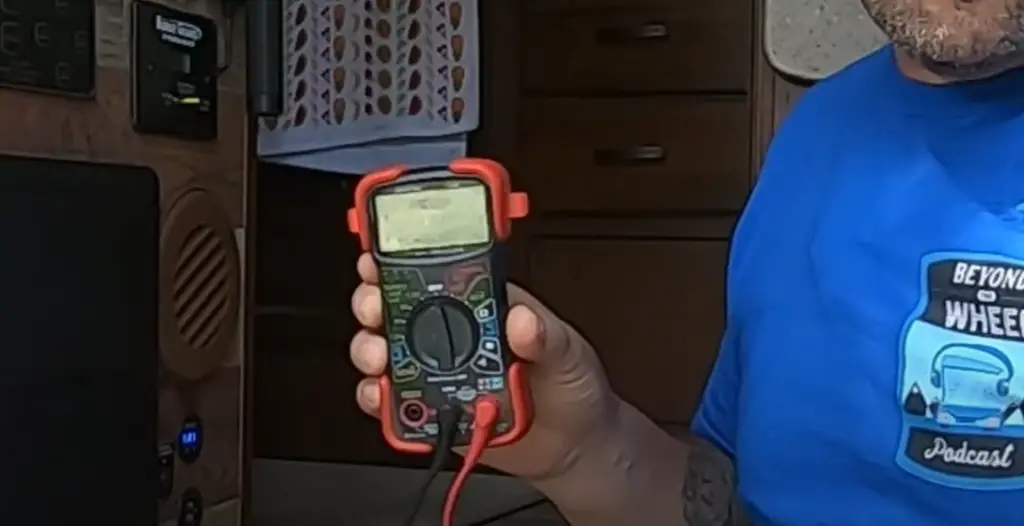
The 12-Volt System: Battery Locations Charging Methods
The 12-volt system in an RV is powered by one or more deep-cycle batteries. Depending on the make and model of your RV, the battery or batteries may be stored in a variety of locations such as under the bed, in a storage compartment, or even inside furniture. To ensure maximum performance from your RV’s electrical system, it’s important to keep these batteries charged up and in good condition. You can do this by connecting the RV to an AC power source such as a shoreline connection or generator, or by using solar panels.
Understanding Voltage Drop Circuit Protection
When troubleshooting your RV’s electrical system, it’s important to understand voltage drop and how it affects your circuit protection devices. Voltage drop occurs when power is lost due to resistance in the circuit, resulting in a decrease of voltage along the length of the wire. This can cause problems with your RV’s electrical system, such as flickering lights or electronics that don’t work properly. To help protect your RV from these issues, it’s important to install circuit breakers and fuses at strategic points in the electrical system.
The 120-Volt System: How to Use It Safely
The 120-volt system in an RV is powered by an AC power source such as a shoreline connection or generator. To use this system safely, it’s important to understand the basics of electrical wiring and how to properly ground your equipment. It’s also important to be aware of any local regulations that may apply when operating your RV on shoreline power. By following these safety procedures, you can ensure that your RV’s 120-volt system is operating at its peak efficiency and providing reliable electrical power to all of your devices [1].
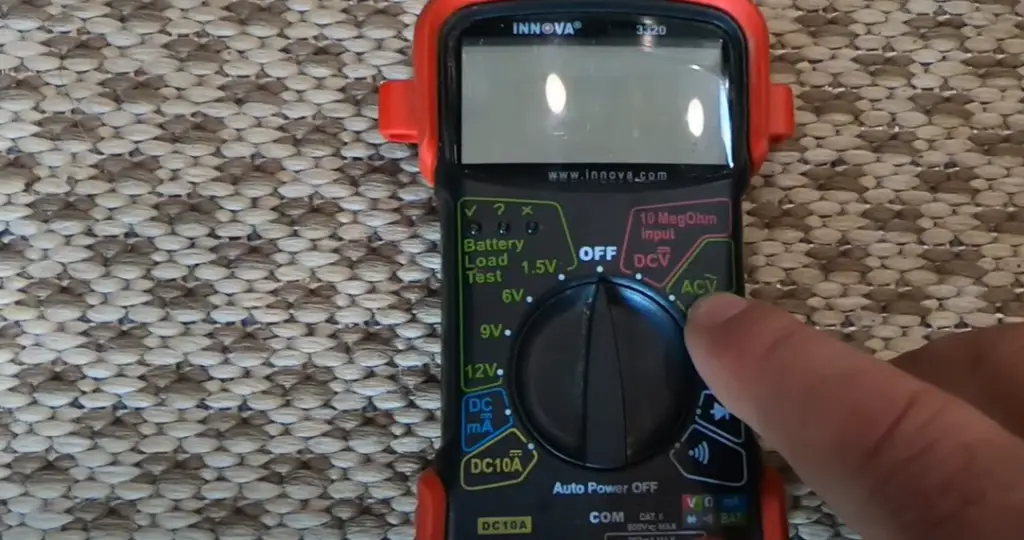
Things You Should Have For Fixing Electrical Problems in RV
When it comes to RV electrical troubleshooting, having the right tools makes all the difference. You will need a few basics:
- Voltage Tester/Multimeter: This is an important tool for diagnosing problems with electrical systems in your RV. A voltage tester allows you to detect small fluctuations in voltage and can help identify where potential issues may exist.
- Screwdrivers: A good set of screwdrivers is essential for working on any electrical system. This includes Phillips and flathead screwdrivers to reach those hard-to-reach places.
- Electrical Tape: Electrical tape is a must when it comes to fixing anything related to wiring or connections in an RV. Be sure to use the right kind of tape for the job.
- Flashlight: While most RV electrical systems are designed to be well-lit, it’s always useful to have a flashlight handy when you need to make repairs or adjustments in tight spaces.
- Wire Stripper/Cutter: If you’re dealing with wiring that needs repair, having a wire stripper and cutter is necessary. This will make the job much easier and safer.
The above tools are just a few of the essentials for RV electrical troubleshooting, but there may be other items you need as well depending on the problem at hand. Be sure to do your research before starting any project and have all the necessary tools ready before beginning any repairs or adjustments. With the right tools, you can ensure that your RV electrical system is running smoothly and efficiently [2].
Power Inverter Considerations for an RV Electrical System
An important element to consider when dealing with an RV’s electrical system is power inverters. These devices are designed to take a low-voltage DC input signal and convert it into a higher-voltage AC signal, which can then be used to power electrical devices. When using a power inverter, it’s important to make sure that you have the correct wattage and voltage for the job. It’s also important to use an appropriate fuse to protect your RV system from damage due to a power surge.
When it comes to wiring an RV power inverter, it’s important to make sure that you use the right materials. This includes making sure that you use appropriately rated wiring and connectors for your setup. It’s also important to ensure that all connections are secure and insulated properly. By taking the time to double-check your work, you can help ensure that your RV electrical system is running safely and efficiently.
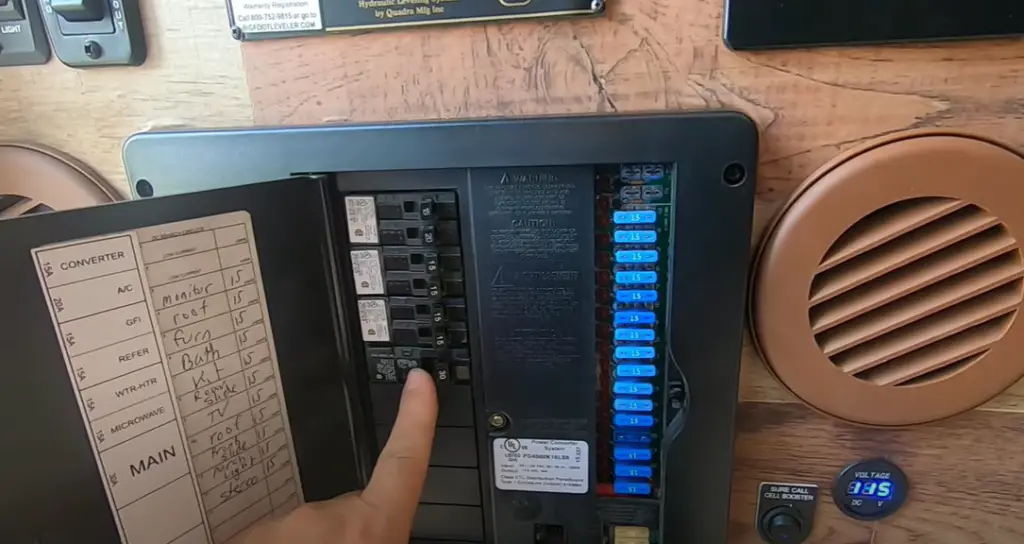
Common RV Electrical Problems And How To Fix Them
Battery low charge or not charging
If your RV’s battery is running low or not charging, you may need to check the connections and wiring to determine the cause. You should ensure that all of the positive and negative terminals are properly secured to their respective batteries. Additionally, if your RV has an external power source (such as a generator) it is important to make sure that these too are properly wired and functioning properly.
Another potential issue could be a faulty battery charger or alternator, which may need to be replaced for your RV’s battery to charge correctly. Additionally, it is important to check that the voltage regulator is functioning properly and not overloading the batteries when charging.
Faulty switches or wiring
Faulty switches or wiring can be extremely hazardous and should be dealt with promptly to ensure safety. It is of utmost importance to diligently examine all the switches in your RV, carefully assessing their functionality. If any of them show signs of damage, such as loose connections or physical wear, it is highly recommended to replace them with new, reliable switches.
Moreover, conducting a thorough inspection of the wiring throughout your RV is crucial. Pay close attention to each connection point, making sure they are properly secured and free from any signs of wear or fraying. By taking these proactive measures, you can safeguard your RV and minimize the risk of electrical malfunctions or accidents.
Blown fuses and tripped breakers
If your RV has blown a fuse or has tripped its circuit breaker, it is important to locate and replace the faulty component. If the issue persists, there may be an underlying electrical problem in your RV’s circuitry. To ensure safety and accuracy, contact an experienced electrician who can accurately identify and address the issue.
Furthermore, it is necessary to be aware of any electrical appliances in your RV that may cause a blown fuse or tripped breaker. Checking the wattage and voltage requirements for each appliance, as stated in its user manual, can help with avoiding such problems in the future.
Blown light bulbs
Light bulbs may blow due to several factors, such as voltage fluctuations or excessive wattage. If you notice that your RV’s light bulbs are blowing frequently, it is important to check the voltage and wattage requirements for each bulb type to ensure that they fall within the recommended range. Additionally, inspecting wiring connections and switches can help identify any potential issues. Replacing any worn or frayed wires is necessary to avoid any potential accidents in the future.
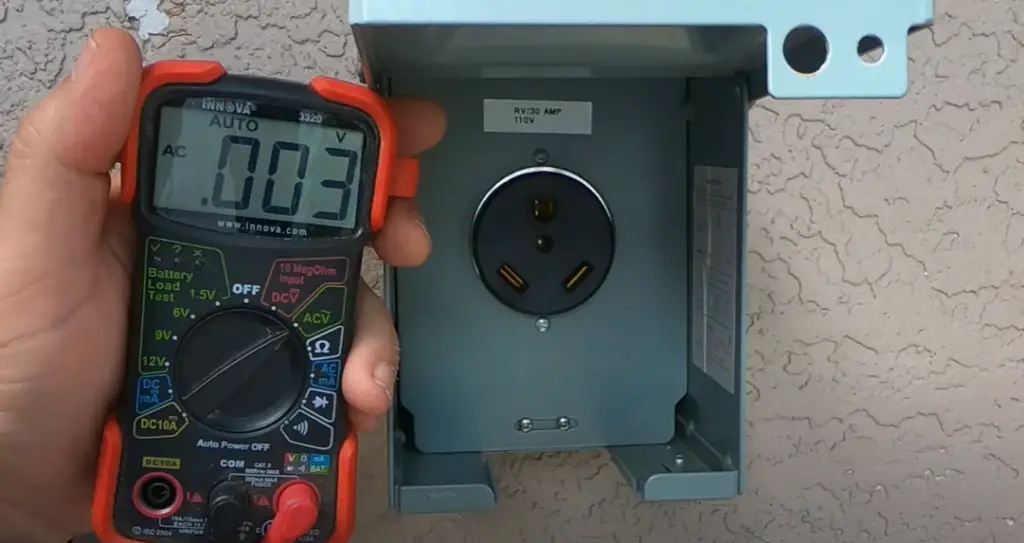
RV to tow vehicle electrical plug connection
A common issue that can arise when connecting your RV to your tow vehicle is a faulty electrical plug connection. This is usually caused by poor wiring or connections that are not properly secured. To troubleshoot this, it is important to carefully check all wiring and connections between the two vehicles for any signs of damage or wear. If any components appear to be damaged, it is essential to replace them with new, reliable ones. Additionally, checking the voltage settings for each vehicle can help ensure that they are compatible and avoid any problems when connecting.
Issues With RV Microwave Oven Refrigerator
If you are experiencing issues with your RV’s microwave oven or refrigerator, it is important to check the electrical connections and wiring between them. Any faulty wires should be replaced immediately for safety reasons. Additionally, it is crucial to make sure that all of the voltage settings match up correctly to avoid any potential damage.
It may also be necessary to check the wattage and voltage requirements for both appliances to ensure that they are within the recommended levels. If an appliance is drawing too much current, it may be necessary to reduce its power output or replace it with a more efficient model.
Issues With RV Roof Air Conditioning Unit
If your RV’s roof air conditioning unit is malfunctioning, the first step to take is to check the wiring and connections between it and the main power source. Ensuring that all connections are secure and functioning properly can help avoid issues in the future. Additionally, it is important to inspect any circuit breakers that may be connected to the AC system, replacing them if necessary.
Another potential issue may be the thermostat, as it is responsible for controlling the temperature of your RV’s interior. If this component has been damaged or is not working correctly, replacement may be necessary. Furthermore, inspecting the air filter on a regular basis can help maintain the air conditioner’s efficiency and improve its lifespan.
RV Lifestyle
Owning an RV can bring many unique experiences and a lot of joy. Whether you’re heading off on a road trip or camping out in the great outdoors, being able to rely on your RV for comfort is something that shouldn’t be taken lightly. With proper electrical maintenance and troubleshooting, you can ensure that your RV will always provide you with reliable service no matter where the road takes you.
From basic electrical maintenance to more advanced troubleshooting, having a good understanding of your RV’s electrical system can make all the difference when it comes to enjoying your time away from home. Whether you’re an experienced camper or just starting out on your journey, having knowledge and peace of mind regarding your RV’s electrical safety will keep you and your family happy and safe [3].
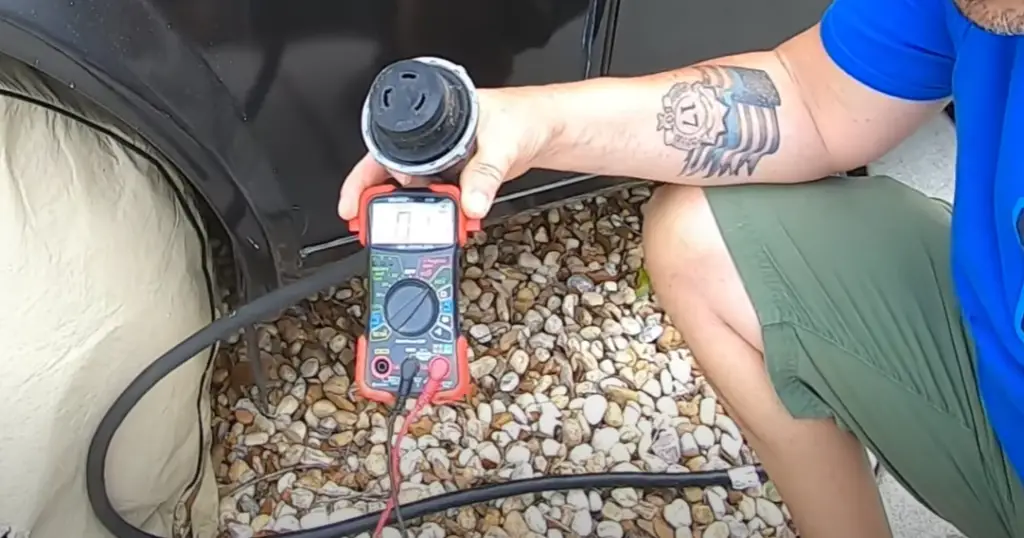
FAQ
How do you diagnose electrical problems in an RV?
Diagnosing electrical problems in an RV can be a complex and time-consuming task. Several steps must be taken before any repairs or solutions can be attempted. First, you should identify the source of the problem by inspecting all of the wiring connections and fuses. If these checks are inconclusive, then further investigation is necessary to detect potential faults such as loose or broken wires, insufficient insulation, short circuits, and other problems.
You may want to use a multimeter to test the voltage levels of the electrical system and identify any abnormalities. Additionally, you should inspect all appliances in your RV that are connected to the power supply for signs of damage or improper wiring. If these checks fail to identify the source of the problem, then you may need to enlist the help of a qualified technician. An experienced RV mechanic can diagnose and repair any electrical issues that you are unable to identify yourself.
What type of fuse should I use for my RV’s electrical system?
The type of fuses used in your RV’s electrical system should depend on its specific voltage ratings. Generally, you should use a fuse that has the same amperage rating as the appliance it is connected to. For example, if your RV’s AC unit requires a 25 amp fuse, then you should use a 25 amp fuse. Additionally, it is important to inspect all of your RV’s fuses regularly and replace any that are not functioning correctly or have been damaged.
Why is my RV electrical not working?
If your RV’s electrical system is not working, then it could be caused by several different issues. These include blown fuses, loose or faulty wiring, insufficient insulation, and short circuits. Therefore, you should inspect all of the wiring and fuses to identify any problems before attempting any repairs or solutions. Additionally, you can use a multimeter to test the voltage levels of the electrical system and detect any abnormalities. If these checks fail to identify the source of the problem, then you may need to enlist the help of a qualified technician. An experienced RV mechanic can diagnose and repair any electrical issues that you are unable to identify yourself.
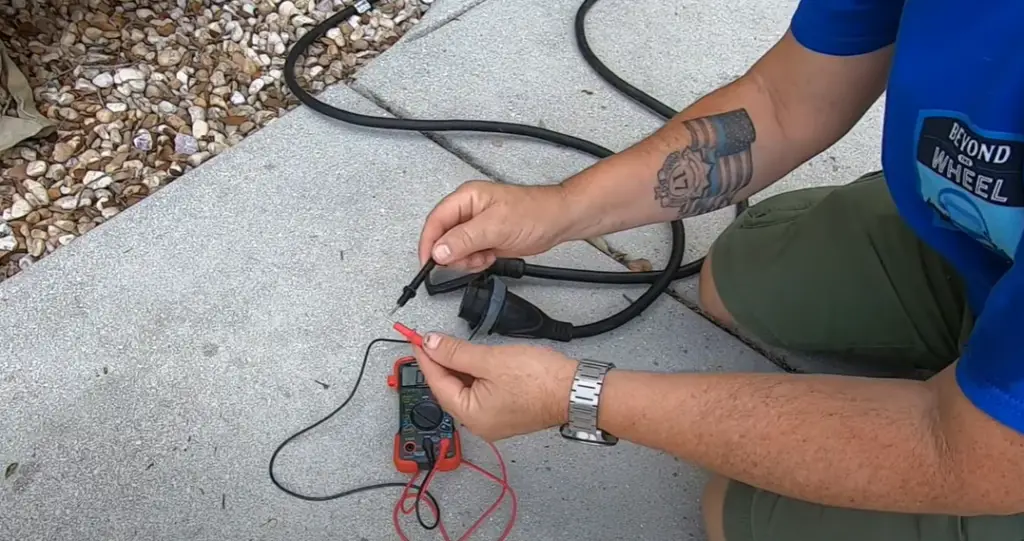
What is a ground fault in an RV?
A ground fault in an RV is a fault that occurs when electricity flows from the hot side of the power supply to ground, usually through a faulty wire. This can cause serious damage and even electrocution if not addressed quickly. Therefore, it is important to inspect all wiring for signs of ground faults and replace any wires or components that may be damaged. Additionally, you should use a multimeter to test the voltage levels of the electrical system and detect any ground faults. If these checks fail to identify the source of the problem, then you may need to enlist the help of a qualified technician. An experienced RV mechanic can diagnose and repair any electrical issues that you are unable to identify yourself.
How do I protect my RV from power surges?
The best way to protect your RV from power surges is by installing a surge protector. Surge protectors are designed to prevent dangerous spikes in voltage from entering the electrical system and damaging the appliances and components connected to it. Additionally, you should inspect all wiring connections regularly for signs of damage or improper installation and replace any that may be faulty. If these checks fail to identify the source of the problem, then you may need to enlist the help of a qualified technician. An experienced RV mechanic can diagnose and repair any electrical issues that you are unable to identify yourself.
What is the difference between a 12V DC and 120V AC system in an RV?
The main difference between a 12-volt DC (direct current) and a 120-volt AC (alternating current) system in an RV is the voltage levels. The 12-volt DC system is designed to supply power to all of the smaller appliances, such as LED lights, radios, fans, and other low-voltage electronics. Conversely, the 120 volt AC system is designed to provide power for larger and more energy-intensive appliances such as microwaves, air conditioners, and refrigerators. Therefore, it is important to understand the difference between the two systems when troubleshooting electrical problems in your RV. If you are unsure of which system your RV uses, then you should contact a qualified technician for assistance.
What safety precautions should I take when working with an RV’s electrical system?
When working with an RV’s electrical system, there are several important safety precautions to take. First, you should always make sure that the circuit breakers and fuses are turned off before attempting any repairs. Additionally, you should never touch any exposed wires or components while they are still connected to the power supply. If possible, it is best to use insulated tools and wear protective gloves and goggles while performing any work on the electrical system. Finally, if you are ever unsure of anything, it is best to enlist the help of a qualified technician to ensure that the work is done safely and correctly.
What should I do if my RV’s power converter fails?
If your RV’s power converter fails, then it is important to determine the cause of the failure before attempting any repairs. Generally, power converter failures are caused by a faulty connection or insufficient cooling. Therefore, you should inspect all wiring and connections for signs of damage or improper installation and make sure that there is adequate airflow around the converter unit. Additionally, you can use a multimeter to test the voltage levels of the electrical system and detect any abnormalities. If these checks fail to identify the source of the problem, then you may need to enlist the help of a qualified technician. An experienced RV mechanic can diagnose and repair any electrical issues that you are unable to identify yourself.
What would cause an RV to lose power?
There are several possible causes of an RV losing power, such as a faulty connection or insufficient insulation. Additionally, the battery may be old or damaged, and it could be drained if something is using too much electricity. Therefore, you should inspect all wiring connections and fuses for signs of damage or improper installation and replace any that may be faulty. Additionally, you can use a multimeter to test the voltage levels of the electrical system and detect any abnormalities. If these checks fail to identify the source of the problem, then you may need to enlist the help of a qualified technician. An experienced RV mechanic can diagnose and repair any electrical issues that you are unable to identify yourself.
Useful Video: RV Power Problems – RV Electric Troubleshooting – No RV AC Power – RV Power Cord and Power Adapter
Conclusion Paragraph
RV is a great way to explore the outdoors and have a great time. But if something goes wrong with your RV’s electrical system, it can be a source of major frustration. Fortunately, there are some steps you can take to troubleshoot any electrical issues that may arise. Make sure to check all connections, test for power loss, and use an appropriate voltage tester to diagnose the issue before attempting any repairs. If you feel uncomfortable or unsure about the repair process, contact a professional technician for assistance. With careful troubleshooting and help from a qualified electrician, you can get your RV back up and running in no time.
References:
- https://rvshare.com/blog/rv-electrical/
- https://rvlife.com/rv-electrical-supplies/
- https://www.doityourselfrv.com/common-rv-electrical-problems/

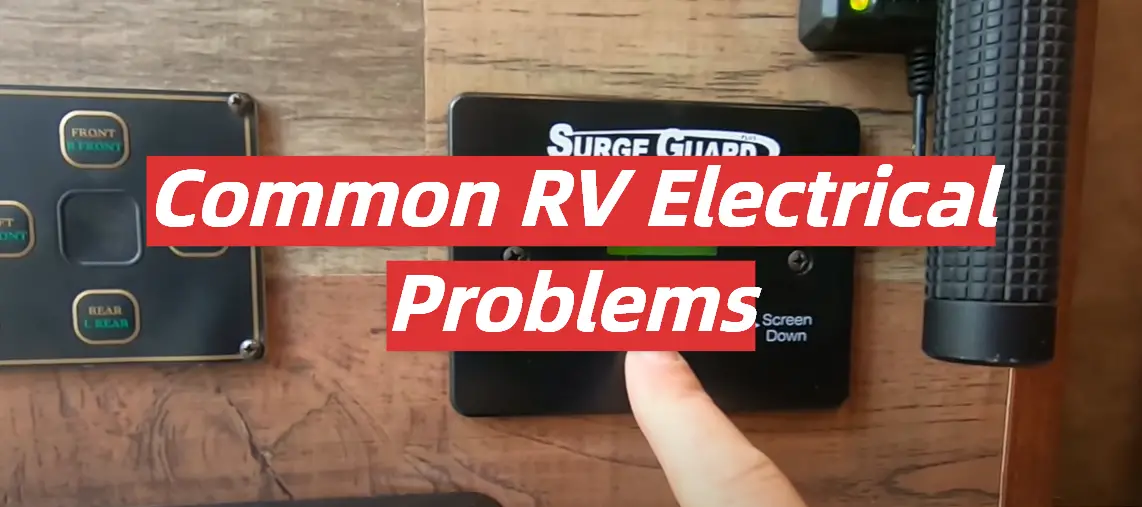

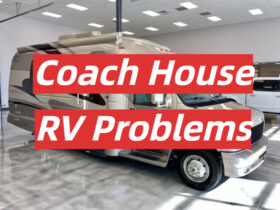

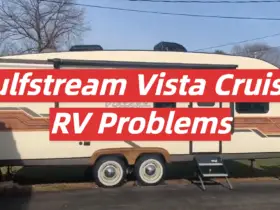
Leave a Reply